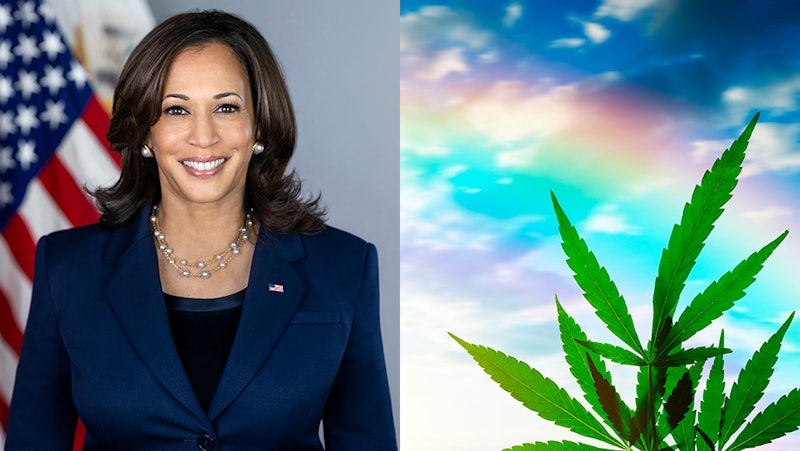Democratic presidential candidate Kamala Harris offered further optimism on Oct. 24 for what her potential Oval Office occupancy could mean for federal cannabis reform.
The vice president listed “legalize recreational marijuana” as the sixth item on her top priorities to-do list she shared Thursday on social media, placing it alongside tax cuts, border security, reproductive rights, health care, gun safety, clean energy, small business development, and Social Security and Medicare protections. Harris also said she plans to pass a federal ban on corporate price gouging on food and groceries.
“Trump has an enemies list,” she wrote on X. “I have a to-do list.”
Still, both presidential candidates have embraced federal cannabis reform as part of their campaign platforms for the first time in a U.S. race for the White House.
Republican candidate Donald Trump said on Truth Social last month, “As president, we will continue to focus on research to unlock the medical uses of marijuana to a Schedule 3 drug, and work with Congress to pass common-sense laws.”
Harris’ inclusion of adult-use cannabis on her to-do list came 10 days after she vowed to legalize cannabis as the “law of the land” and to fight for a national cannabis industry as part of her “Opportunity Agenda for Black Men.”
To break down “unjust legal barriers” for Black men and other Americans, Harris said she intends to work with “Congress to ensure that the safe cultivation, distribution and possession of recreational marijuana is the law of the land,” according to her opportunity agenda. “She will also fight to ensure that as the national cannabis industry takes shape, Black men—who have, for years, been overpoliced for marijuana use—are able to access wealth and jobs in this new market.”
These 2024 campaign promises come amid President Joe Biden’s administration’s current rescheduling effort to reclassify cannabis as a Schedule III drug under the Controlled Substances Act (CSA). That effort hinges on the Drug Enforcement Administration’s (DEA) administrative law judge hearing scheduled for after the election. Until then, the issuance of the DEA’s final rule to potentially align with the Department of Justice’s proposal for a Schedule III listing remains grounded.
While the federal government would acknowledge cannabis as having currently accepted medical use in the U.S. under a Schedule III listing, as well as a lower potential for abuse, the plant would remain criminalized under this classification. Fully descheduling cannabis by removing it from the list of controlled substances—just like alcohol and tobacco—is an act that 70% of Americans support, according to Gallup.
Despite Harris’ campaign promises to legalize cannabis—not just reschedule it—her opponents have attacked her record as a former prosecutor who served as the district attorney of San Fransico and later as the attorney general of California, before her stint as a U.S. senator from 2017 to 2021.
Harris’ opponents claim she targeted and locked up thousands of Black people in San Fransisco for cannabis possession when she was the district attorney. Harris addressed these claims earlier this month during a radio interview with The Breakfast Club.
“It’s just simply not true,” Harris said. “What public defenders, who were around those days, will tell you, I was the most progressive prosecutor in California on marijuana cases and would not send people to jail for simple possession of weed, and, as vice president, have been a champion for bringing marijuana down on the schedule, so, instead of it being ranked up there with heroin, we bring it down.
“And my pledge as president, I will work on decriminalizing it, because I know exactly how those laws have been used to disproportionately impact certain populations and specifically Black men.”
Many Americans support federally decriminalizing cannabis as a restorative justice mechanism to help right the wrongs of prohibition policies under the decades-long drug war.
A Black person in America is 3.6 times more likely than a white person to be arrested for marijuana possession despite comparable marijuana usage rates, according to the American Civil Liberties Union (ACLU). The racial disparity in California (1.8 times more likely) was the third lowest in the nation, per the ACLU report.
Although cannabis reform has become a popular political issue this election cycle, Harris’ stance on federal legalization predates her candidacy for president.
During a White House roundtable discussion on criminal justice and cannabis drug policy in March, Harris said, “We need to legalize marijuana,” and, “What we need to do is recognize that far too many people have been sent to jail for simple marijuana possession.”
H/T: www.cannabisbusinesstimes.com




